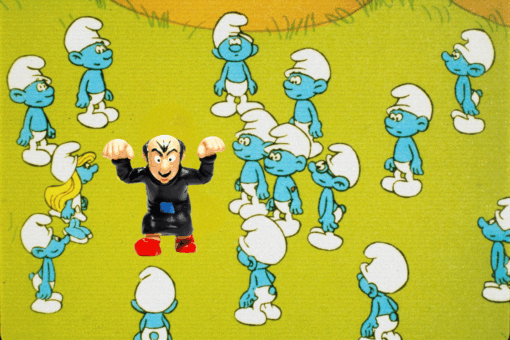There are few moments in the cycle of life that Jews hold tradition and ritual as close as they do than in death. Perhaps birth, marriage, and some holidays near the top of the list, but in death — and grieving — many hold steadfast to the Jewish ritual of sitting shiva, among others surrounding the funeral, burial, and mourning process.
In reflecting on other religious and cultural traditions surrounding death, I have come to understand and appreciate the power of sitting shiva. A prescribed mourning of sorts, it forces the mourners to take a week to remove themselves from their routines and allow others to provide comfort and solace. For the friends and extended family providing the comfort, shiva visits also serve as an opportunity to show love and support in the early days following the loss.
But that’s not so easy.
While it may be easier for some than others, for many, the gesture of providing comfort and support to a grieving friend or loved one is at least somewhat uncomfortable. We wonder if we are saying the right things and if there is more we should be doing, bringing. We want to make the hurting go away. We want to help.
I’ve come face to face with this in the past number of years during my graduate training in clinical psychology, and specifically in my learning how to be a therapist. The countless hours studying theory and differential diagnosis, the careful watching of therapy sessions behind a one-way mirror, the honing of my listening and reflecting skills — all of it and none of it prepares you for the first or the 50th time you sit and share space with someone in pain. It hurts to hear of their hurt. Empathy is exhausting.
Perhaps that’s why so many of us, myself included, struggle when trying to comfort our grieving friends. Of course we want to do everything we can to make them feel better, and we often go about it by actively doing things to try to help them — or even to distract them — from their pain. But in doing so, we are, intentionally or not, protecting our own hearts from feeling too much of their pain. Don’t get me wrong, the active help — like making food, running errands, and even some distractions — is important. However, it’s not a replacement for the often neglected quiet comfort of listening. Of really listening.
Until I started training as a therapist, I never gave listening much thought. To my mind, listening was just not talking over someone and maintaining some semblance of eye contact. (This is perhaps where you, the reader, wonder how on earth I ended up training to be a psychologist… you’re not wrong, though I’ll save that rollercoaster for another essay.) Sure, there are the listening skills that most people practice, to some degree, intuitively. We nod our heads, mumble “mhmm,” and repeat (reflect, in therapist speak) back what we’ve been told.
But really listening and staying completely present, that’s a set of skills most of us could use some practice in. This kind of listening means not spending the whole time thinking about what you will say next and definitely not somehow, albeit with good intentions, making the exchange about yourself. This, among other things, is my perpetual and personal work in progress.
So how does this all come back to providing comfort to grieving friends? Unfortunately, no listicle on “How to Help Your Grieving Friend” will make it all go away, and even infinite amounts of bagels and schmear won’t ease their pain (though it does help!). It’s the worst-kept secret of friendship that provides the slow acting antidote to grief: being present and providing a listening ear.
This kind of presence is difficult. It’s vulnerable and uncomfortable and sometimes opens you up to your own pain. But this is what it can look like: encouraging them to share stories and memories of their love lost, the good ones and the bad ones. Showing up repeatedly and providing a safe space for them to feel their feelings without shame or embarrassment. Listening well past when others have stopped.
The shiva, those seven days of mourning when friends and family gather to provide comfort, is but a metaphorical microcosm to helping a grieving friend. Sure, the surplus of food and the emotional conversations are unabashedly Jewish, but it is the quieter moments that are profoundly healing, and I would argue equally as Jewish. Listening to, and sharing, stories and memories keeps the light of our loved ones alive. This kind of presence can be tremendously difficult, but if you are able, I know it would mean the world to your grieving friend.
If someone you know is struggling with grief and is in need of professional support, check out nami.org.
This article was made possible by the generous support of UJA-Federation of New York to raise awareness and facilitate conversations about end of life care in a Jewish context.
Image by StockRocket via iStock/Getty Images Plus



